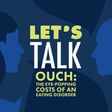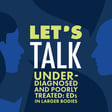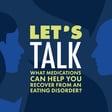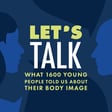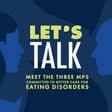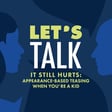
In Depth with occupational therapist Dr Elysa Roberts
In this episode, we sit down with occupational therapist Dr Elysa Roberts to discover why OT can be effective in treating eating disorders.
First, what is an occupation? It’s generally defined as “any activity in which one engages”, which means it’s a lot more than just a job. An occupation can include eating, exercising, working, shopping, socialising, parenting, education, time spent on spiritual practice... the list just goes on. Occupations are all the ordinary and everyday activities of life.
An eating disorder can be considered an occupation, but one that isn’t good for your health or well-being. Recovery could also be defined as an occupation, and that’s why Occupational Therapists can play a key role in a person’s treatment team.
Dr Roberts, an OT since the early ‘90s, says that she realised the importance of OT as a treatment modality through her own lived experience.
“I'd go through waves of treatment, be discharged, recover, and then go through it again all while establishing my OT career. Unfortunately, what wasn't happening in those days was strong relapse prevention programmes, or relapse prevention being included as part of recovery.”
Now things are changing. Dr Roberts describes how OT can help – first by bringing a unique and holistic understanding of an individual’s mental, physical and sensory profile, but also by co-designing practical interventions that can make all the difference to ongoing recovery.
If you think you need to find out more about occupational therapists and how they could help you or someone you love, Butterfly could help. Go to Butterfly.org.au or call the Butterfly helpline on 1800 ED HOPE - 1800 33 46 73.
See omnystudio.com/listener for privacy information.





